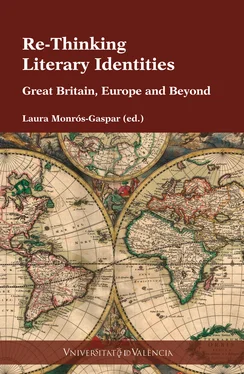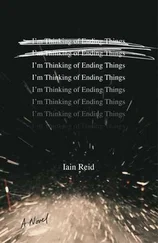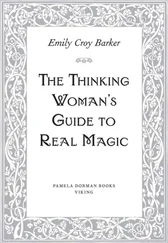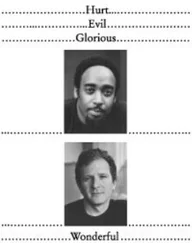TRADITIONAL SONG AND THE SOCIAL TURN: VOICING CHANGING NATIONS
It’s important not to overstate the radicalism, or the potential efficacy, of such theatre practices. As Helen Freshwater observes in Theatre and Audience , audience activity does not automatically equate to political transformation: ‘participation does not necessarily amount to empowerment’ (2009: 62). Claire Bishop similarly cautions that ‘models of democracy in art do not have an intrinsic relationship to models of democracy in society’ (2012: 279). However, all three performances explored here were all created during, and in response to, a period characterized by a resurgence of faith in the possibility that democratic participation might fundamentally re-make both Scotland, and Great Britain. Even though the Referendum of September 2014 returned a ‘No’ vote, and formal Scottish independence (the outcome explicitly sought by some, though not all, of the artists discussed in this chapter) remains unachieved, the energies and aspirations of the pre-Referendum years inspired a mood of possibility, and of creatively vocal debate, both among the Scottish electorate, and beyond (Greig 2013). As Bissell and Overend, drawing on Nicolas Bourriad’s notion of ‘relational aesthetics’ (2002: 43, 112), argue: ‘the performances of the Referendum had a particular value in creating autonomous relational spaces for participants to rehearse and formulate their individual politics’ (2015: 250).
For all of the works under discussion, the participatory performance dynamics associated with traditional practices of popular song, together with the numinous territories and fantastical transformations evoked in the supernatural ballads of Scotland and England’s borderlands, inspired a range of innovative strategies aimed at promoting audiences’ active, imaginative, and vocal engagement with issues surrounding nation, identity, and the rapidly changing communities of contemporary Great Britain. Many of the strategies employed by the makers of The Strange Undoing of Prudencia Hart, The Bloody Great Border Ballad Project , and Rantin have their roots in Scottish traditions of the socially-engaged ‘ceilidh-play’, which frequently employed traditional song (along with storytelling, joke-telling, dancing, drinking) in order to critique the political or economic status quo within local community settings (Reid 2013: 10-13). This heritage undoubtedly offered a valuable resource for theatre-makers engaging with the politics and potentials of the pre-Referendum years, but reading their works in terms of a more recent ‘social turn’ also allows such performances to be located within a broader, international movement in the contemporary arts. Rather than embracing old-style agitprop didacticism (Neilson 2013: x), the new works discussed in this chapter developed a variety of laid-back, convivial, and self-deprecating dramaturgies, repeatedly inviting spectators/participants to engage in creating ‘everyday micro-utopias’ (Bourriaud 2002: 31) within which a plurality of views and voices might be encountered, and playfully explored.
All three of the theatrical works examined here privileged smallscale, local imaginings, and multi-vocal re-negotiations of collective and individual identities, over official national mythologies. Their re-appropriations of traditional songs reflected and (in some cases) aspired to shape new political realities, engaging with a variety of global and local possibilities for the changing nations of Great Britain. The plays and performances discussed here did not aim to produce consensus, but rather to contribute to and extend conversations and debates which were already taking place across Scotland and Great Britain, using ballads and popular song traditions to endorse if not critical dissensus (see Harvie 2013: 8-10), then at least a raucous polyvocality, while retaining the conviviality associated with informal practices of song-sharing. For all three, traditional ballads and songs became a ‘social interstice’, within which ‘new “life possibilities”’ might be discovered (Bourriad 2002: 45). As this chapter has contended, they used the ‘co-existential act’ (McFadyen 2013: 154) of re-voicing old songs to heighten audiences’ awareness of their own imaginative and vocal potency in relation to wider narratives of nation, place, and belonging. The Strange Undoing of Prudencia Hart, The Bloody Great Border Ballad Project , and Rantin all invited their audiences to engage with an expansive, fluid, and playful sense of what nation and identity might mean in a twenty-first-century global context, re-making and re-performing of old songs to give collective, disunited voice to potentially radical new imaginings of community, locality, and nation.
Конец ознакомительного фрагмента.
Текст предоставлен ООО «ЛитРес».
Прочитайте эту книгу целиком, купив полную легальную версию на ЛитРес.
Безопасно оплатить книгу можно банковской картой Visa, MasterCard, Maestro, со счета мобильного телефона, с платежного терминала, в салоне МТС или Связной, через PayPal, WebMoney, Яндекс.Деньги, QIWI Кошелек, бонусными картами или другим удобным Вам способом.










